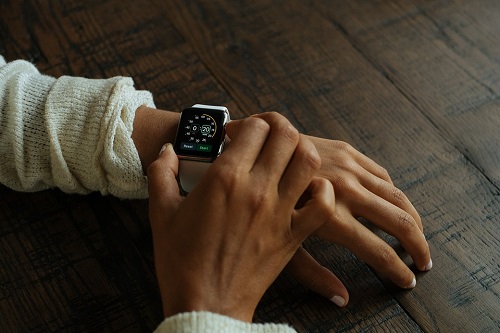With many City workers ranking up around 60+ hours every week, they need to undertake exercise and a healthy lifestyle during the working day. However, this article isn’t just aimed at City workers but everyone who spends long periods at their desk.
But before moving on to the ways of staying healthy, we should consider what working long hours every day actually does to the body.Why make a change?
Firstly, workers are burning 50 fewer calories every hour than they do when standing, which might help explain why standing desks are growing in popularity.
Office workers are also putting on weight by eating unhealthy snacks, plus they increase the risk of heart disease by 125%. In fact, all causes of death grow by 50% by sitting for long periods.
This is underlined by a major Australian study which revealed that sedentary behaviour leads to a major risk in developing Type II diabetes, as well as increasing the risk from bad cholesterol and insulin resistance.
In addition, one London university has also that warned that working with lots of stress over a long working day can double a person’s risk of depression.
In July of this year a report was published which revealed that people need more physical activity in a bid to counter the health effects that are brought on from long hours sitting at a desk. Here’s our guide to help correct this.
Set a timer
One of the best tips is for a worker to set a timer that goes off every 30 minutes for them to have a stretch and possibly a short walk before resetting the timer.
This is also a good opportunity for drinking lots of water, which helps rehydration when working in an office, particularly if it is air conditioned.
Experts in the field say the best solution is for a worker to have the opportunity to alternate between a desk to sit at and one they can stand at, while most ergonomic office chairs today have movement systems which help prevent sedentary postures.
For those who decide to use two types of desk there’s a formula for using them which is: 20 – 8 – 2. This effectively means that the worker will sit for 20 minutes, stand for eight minutes and then have two minutes of a physical activity such as walking. That’s 30 minutes to help prevent heart disease and other ailments. The worker will need to do this throughout the day.
Use the stairs
Another old-fashioned tip that lots of people tend to ignore is to use the stairs whenever they need to go between floors; while a lift is easy to use, the worker will use no energy, whereas walking up and down stairs will burn calories and use vital muscles as well.

It’s important that workers stretch their legs every 30 minutes or so, whether that means going for a toilet break or heading to the drinks machine. If they are making a long telephone call then they should use a mobile handset so they can walk around while speaking to the other person.
There is no doubt that employers are aware of the impact of employees sitting for long periods which is why there is a growing trend for ‘walking meetings’, which are effectively or two or three people who go for a stroll and work through an agenda.
Think about your commute
Most people working in the City of London will be commuting to their place of work on public transport and this gives them a good opportunity for exercise.
To do this the worker should get off one stop before they need to and walk the rest of the way; this is better if it’s at least a mile, which will help boost their health and well-being. It also helps to burn up to 200 calories for a half-hour walk.
Cycling to work is also a popular choice with many people, particularly if there are showers available and somewhere to keep their bikes safe. Not everyone is happy cycling on London’s roads so this solution is perhaps for more experienced cyclists.
Walk more
Following on from the tip of walking the last mile or two into work, City workers should also consider walking across the office or to another floor to speak with someone rather than sending an email. It’s not just a personal thing to do but it makes them more active as well. This interactivity with people will also boost a person’s sense of well-being.
Check your monitors
Along with having to remain seated at their desk for long periods, City workers are also glued to their computer monitors for lengthy periods. This is not good for their eyesight and many will find they suffer with headaches as a result.

Healthy eyes are important for all of us, so workers should adjust their screen brightness as well as the ambient lighting to ensure that their eyes are not straining to read what is on the screen. Perhaps the addition of a desk lamp may help. It’s also a good idea to look into the distance to exercise the eye muscles every 20 minutes or so.
Workers can also use the monitors to adjust the font size of what’s on the screen so their eyes are not straining to read any small print.
It’s also important that those who use computer monitors for lengthy periods do not have their eyes dry out. While there are drops available for this, it is probably a better idea to keep the atmosphere around them moist, for example by using a water spray.
Whilst on this subject it also important to check that the worker’s computer monitor is at the right height and is not too far from them so they do not strain their eyes or neck muscles when looking at it. It’s important to research how they should sit and their eyes should be level with the top of the screen. They should be able to reach out and touch the screen which will be the maximum distance from them.
Sleep and diet
Another big help for City workers wanting to look after their health is to get enough sleep every night, at least seven hours, and they should also eat a balanced and healthy diet. It may also be a good idea to prepare healthy lunches so they are not tempted to eat unhealthy sandwiches or other food.
Also, when we talk about diet, City workers should avoid unhealthy foods such as crisps, cakes and sweets – and though they may bring a surge in energy over the short-term they should be replaced with healthier options such as apples or granola bars.
Wearable technology
There’s been a huge uptake in wearable technology such as Fitbit, which monitors the wearer’s health and helps them remain motivated. A City worker could set themselves a goal and the technology will help them achieve it and remain healthy.

Most of this technology also sounds an alarm if the wearer has been stationary for too long to encourage them to move about and use some energy. Most of them will encourage the wearer to achieve at least 10,000 steps every day. This is a great idea and a sound incentive for people who work at their desks – it may mean that the City worker has to get off two stops before they need to on their train, bus or tube in order to meet the 10,000 steps incentive.
Learn to say no
One of the major reasons City workers are spending so long in the office is that they may be taking on more than they can do during normal hours. This is a normal process because they want to come to their boss’ attention, but there are health implications for doing so.
This means that it’s important to learn how to say no without causing offence and avoiding over-working – saying no also delivers empowerment and gives workers a belief that they have a choice in what they do and how they do it during the working day.
This is the point at which to recognise the symptoms of stress and its effects on a worker’s health so a City worker needs to appreciate what they can and cannot do workwise without harming their health.
Plants
Our final tip doesn’t take any effort and doesn’t need an alarm to remind the City worker to do something: to have plants or flowers around the work area.
Plants help to brighten up a drab office, but they also boost the air quality and help remove air impurities. A wide range of easy to keep plants that require little maintenance means the City worker doesn’t really have to be green fingered either.

Among the plants that will thrive in an office are spider plants, rubber plants and ivy. Aloe and cactus also make for good choices.
In an office, plants will help increase happiness as well as productivity and there should be around one plant for each square meter. Plants also help decrease stress, according to one office plant supplier, and help boost productivity by 12%.
According to a study in 2010, the presence of plants means that anxiety and tension is reduced by 37%, depression is reduced by 58% and anger is reduced by 44%. It’s also interesting to read that fatigue sees a 38% reduction when plants are placed in an office.
However, city workers don’t have to go mad when installing plants; just one plant will help lift spirits and promote work performance and well-being.
Also, all workers in an office should appreciate that plants will boost concentration and cognitive tasks so productivity improves as well. In addition, fewer mistakes are made and work tasks are completed more quickly.
There’s a lot to recommend plants as a way to boost the health of workers working long hours in the City of London.
By taking on board the tips mentioned here, City workers will be able to maintain their physical activity levels by simply incorporating them into a daily routine by walking more, using the stairs and making sure their desk is set up well.
However, it’s not just about exercise in the office. A lunchtime break is also a good opportunity to go for a walk in the surrounding streets or to play football or go to the gym. It’s also important to consider activity after work which may mean going to the gym, playing sports or taking part in other physical activities.
It’s also important to appreciate that for those City workers who are struggling with stress, then boosting the amount of exercise they do will help counter its negative effects.
Essentially, as mentioned previously, it’s important that City workers have the opportunity and encouragement to leave their desks for short periods to exercise the right muscles and also take a break from what can be a stressful job environment; most employers should appreciate that taking breaks will help get the best from their employees and they should encourage regular breaks for this reason.
We all know that we need to eat less, exercise and sleep more but few of us have the incentive until we have a health scare. However, we just need the willpower to make a healthy decision to avoid working long periods without enough exercise to help us onto the path to better health and well-being.
Do you work in the City? Do you have any tips for other City workers? Share your thoughts in the comments, or answer the questions here to be featured in an interview!

